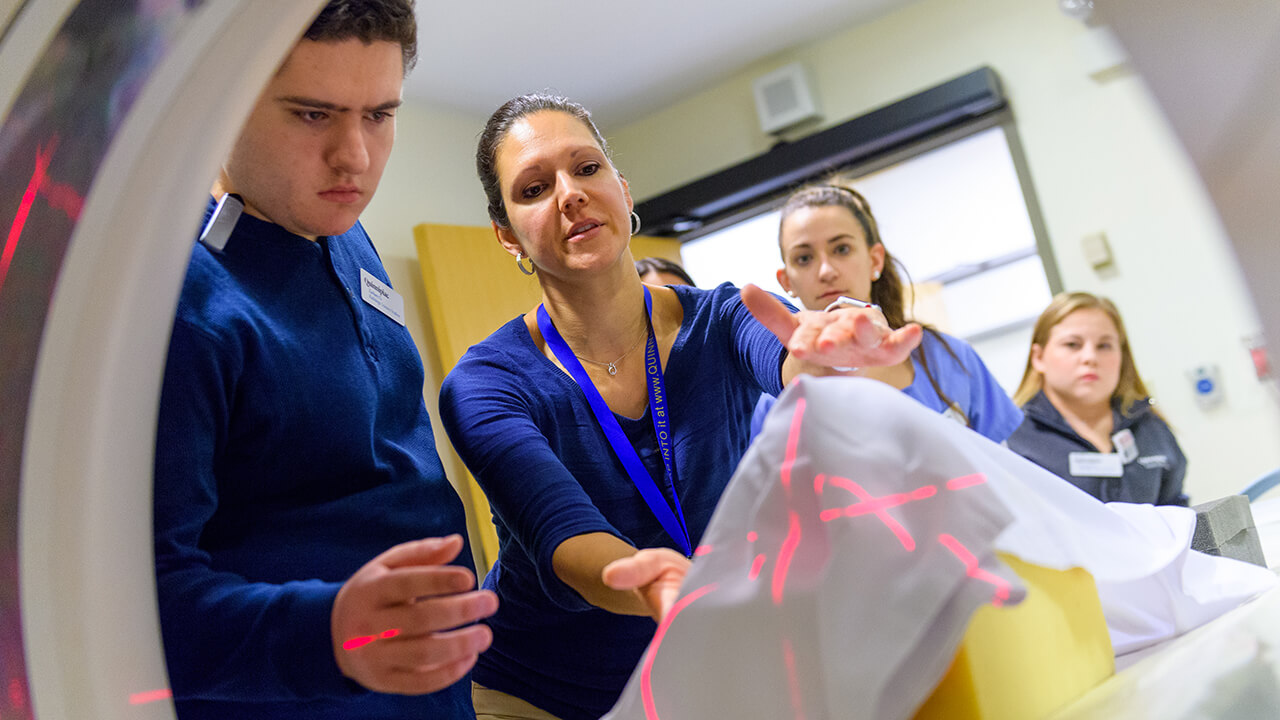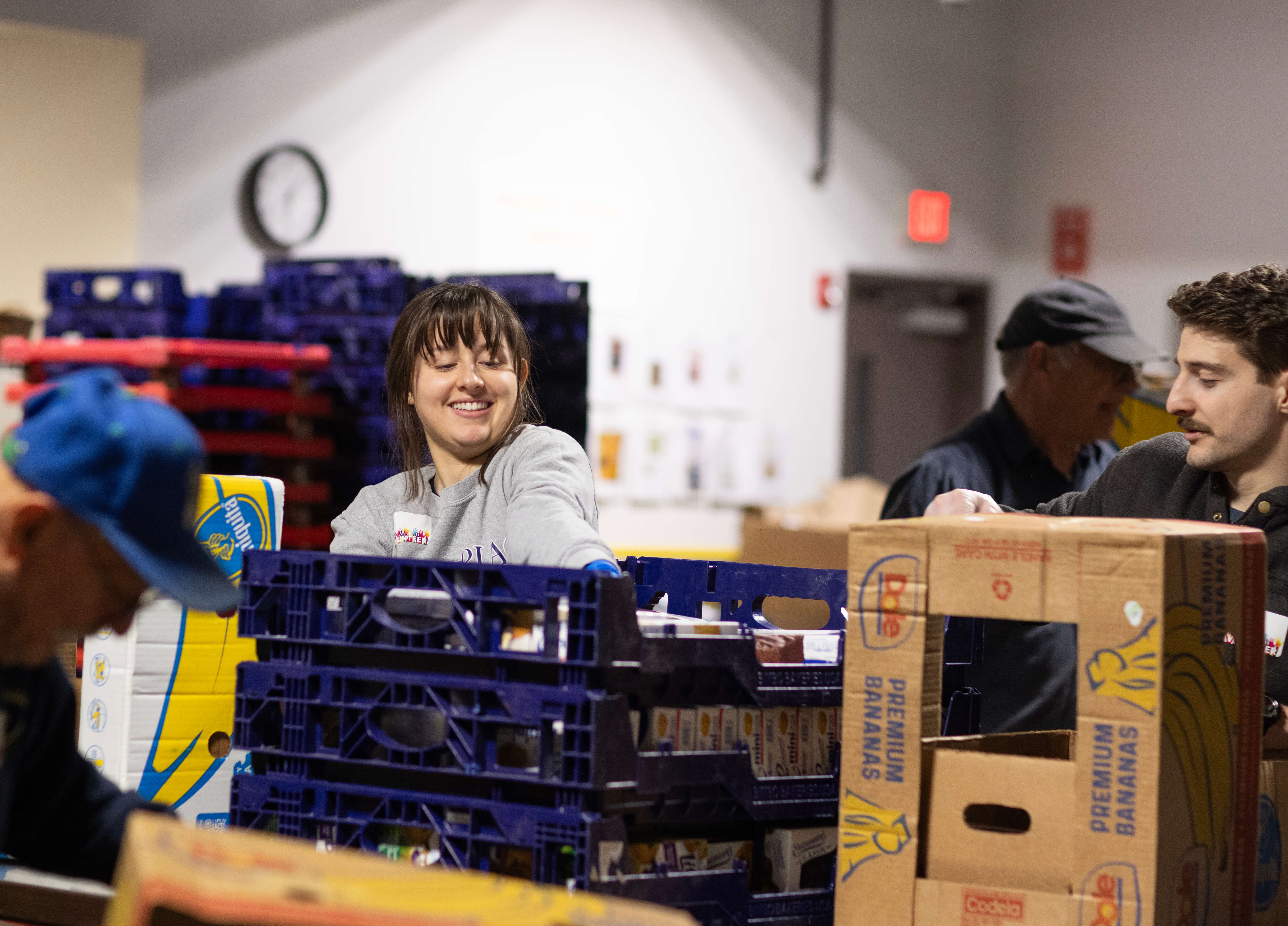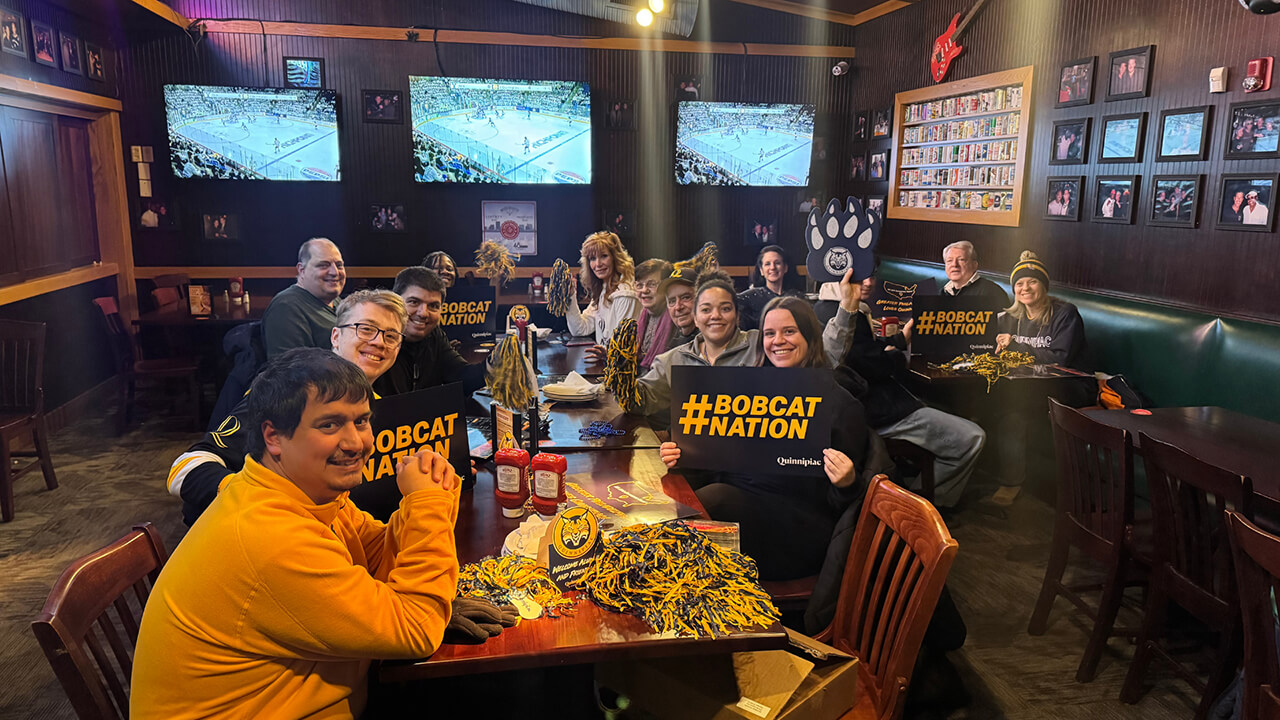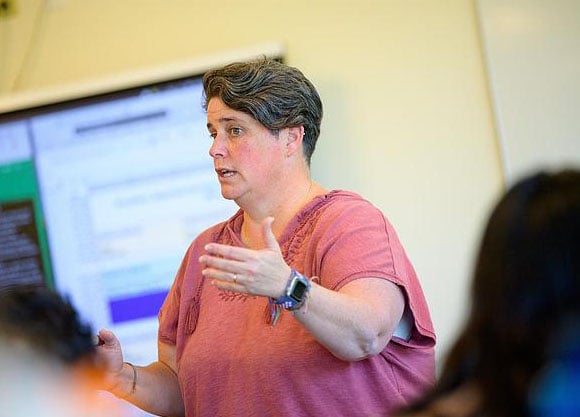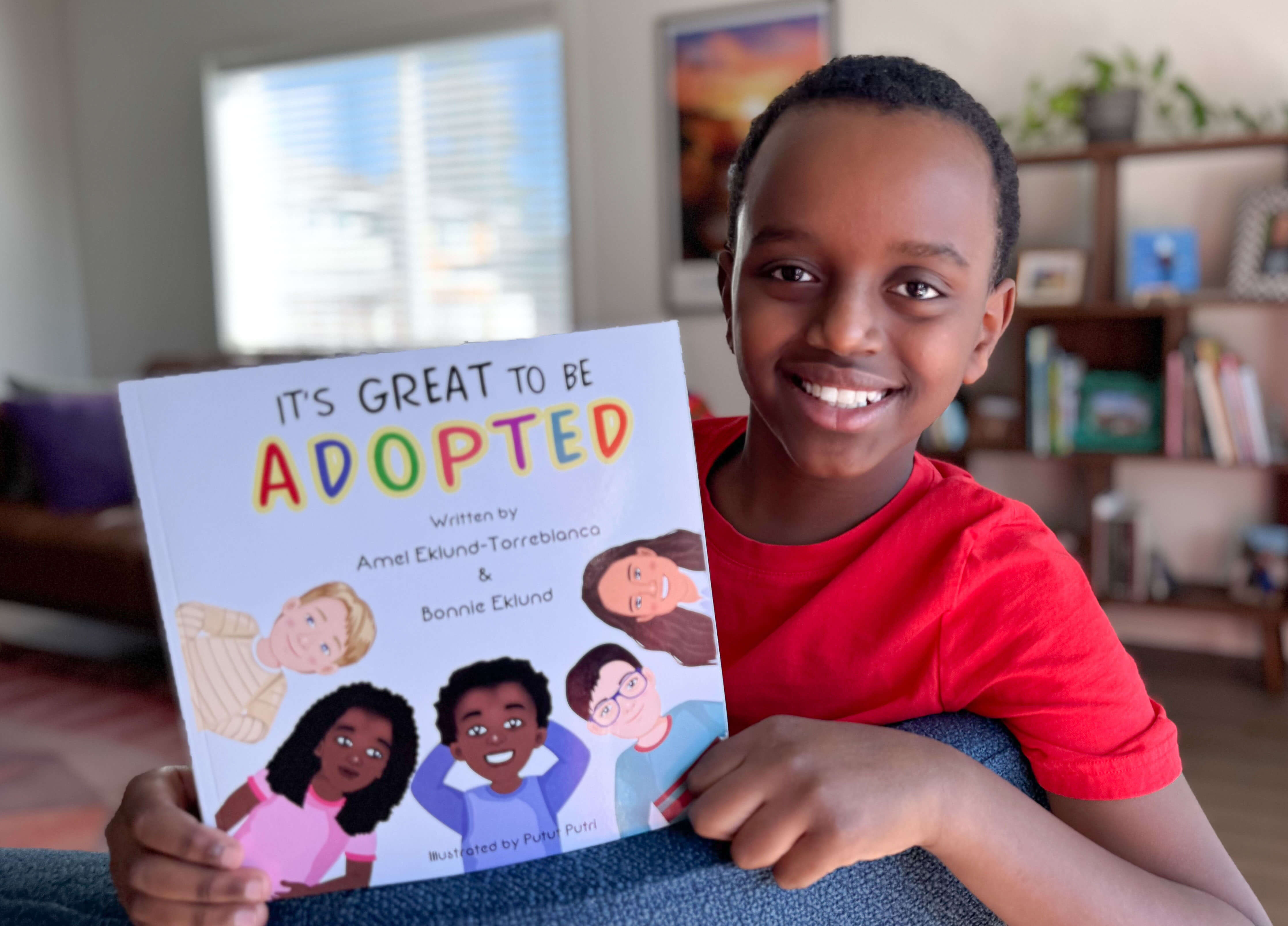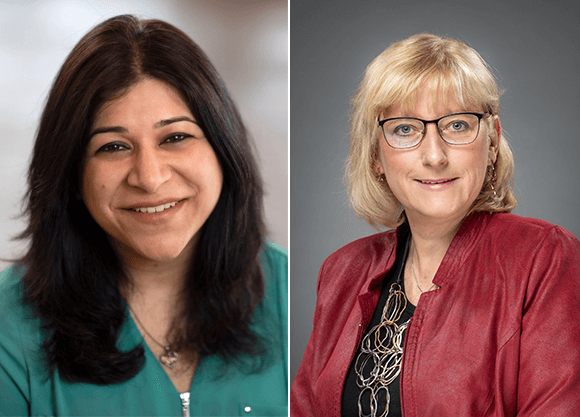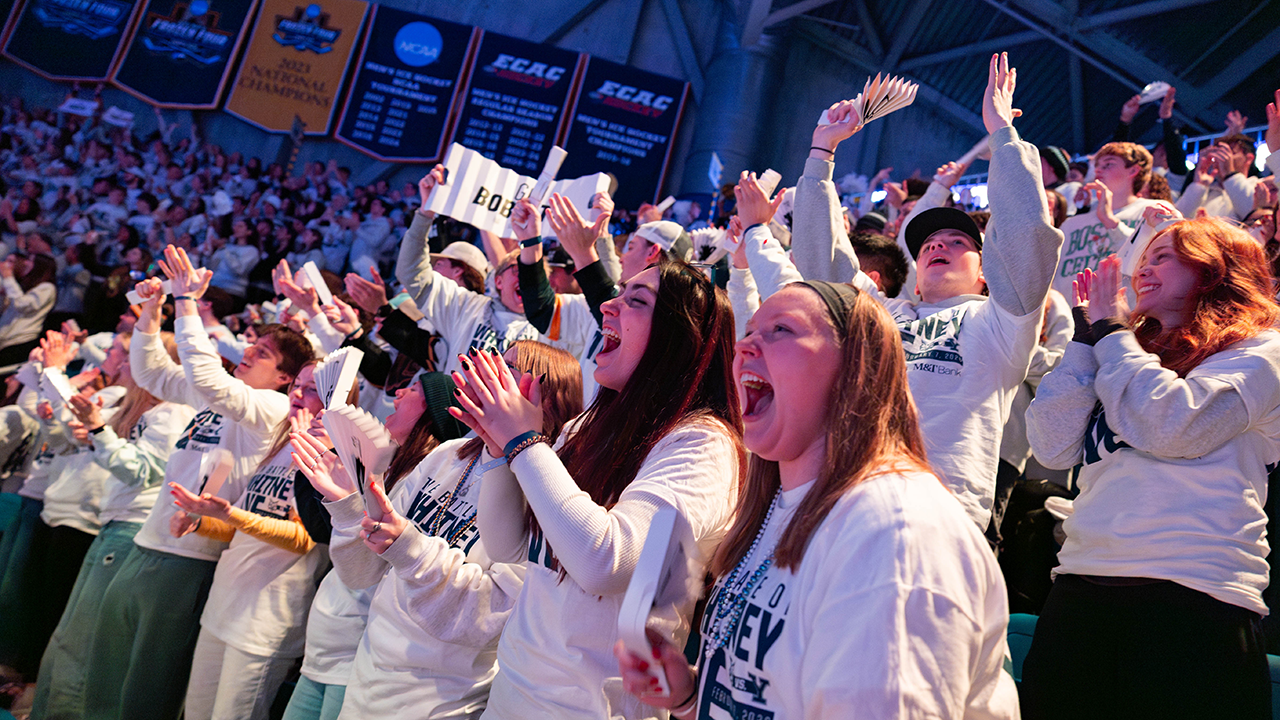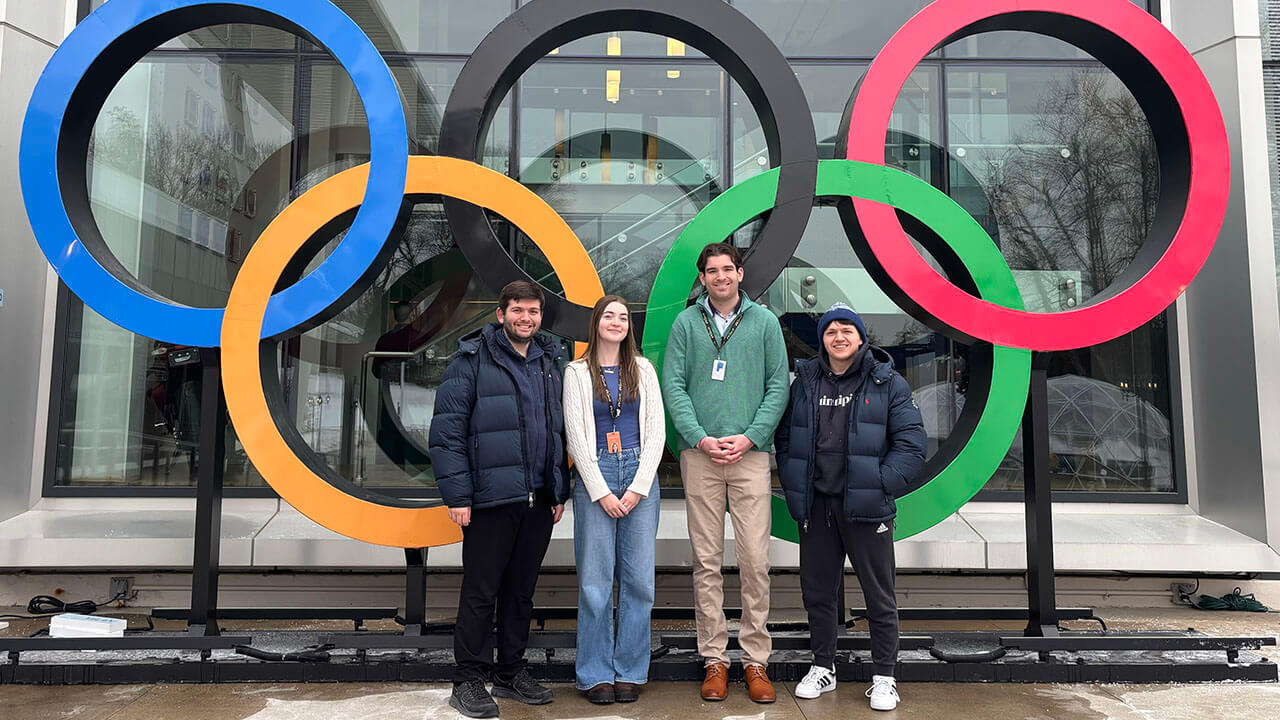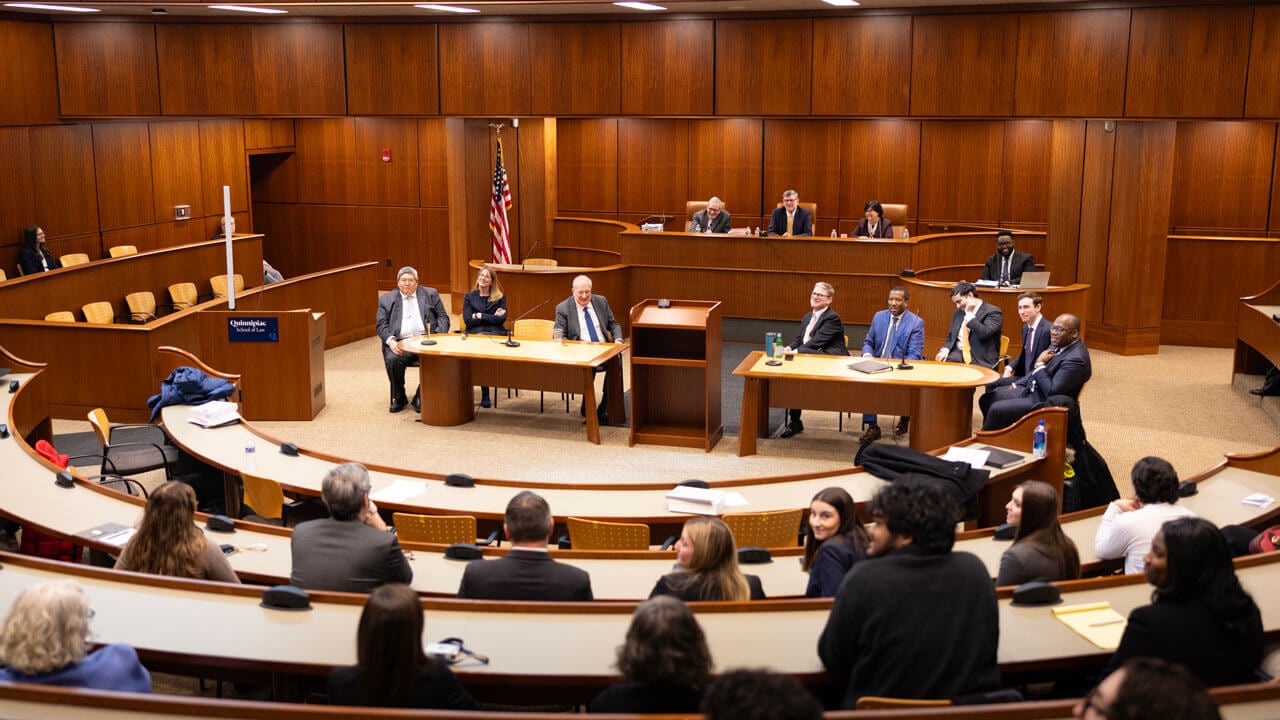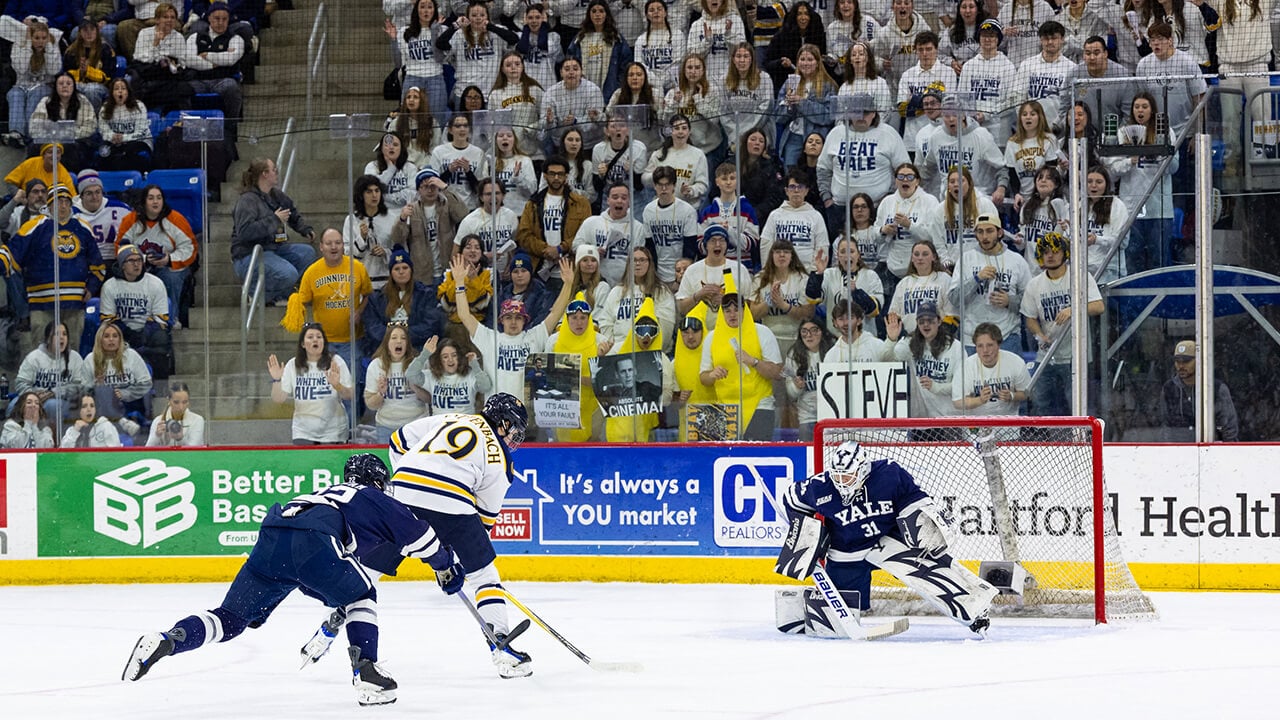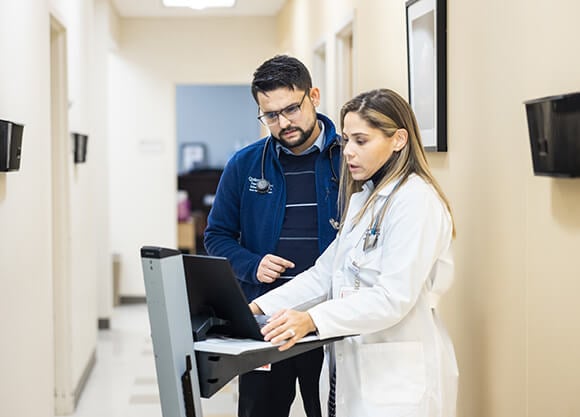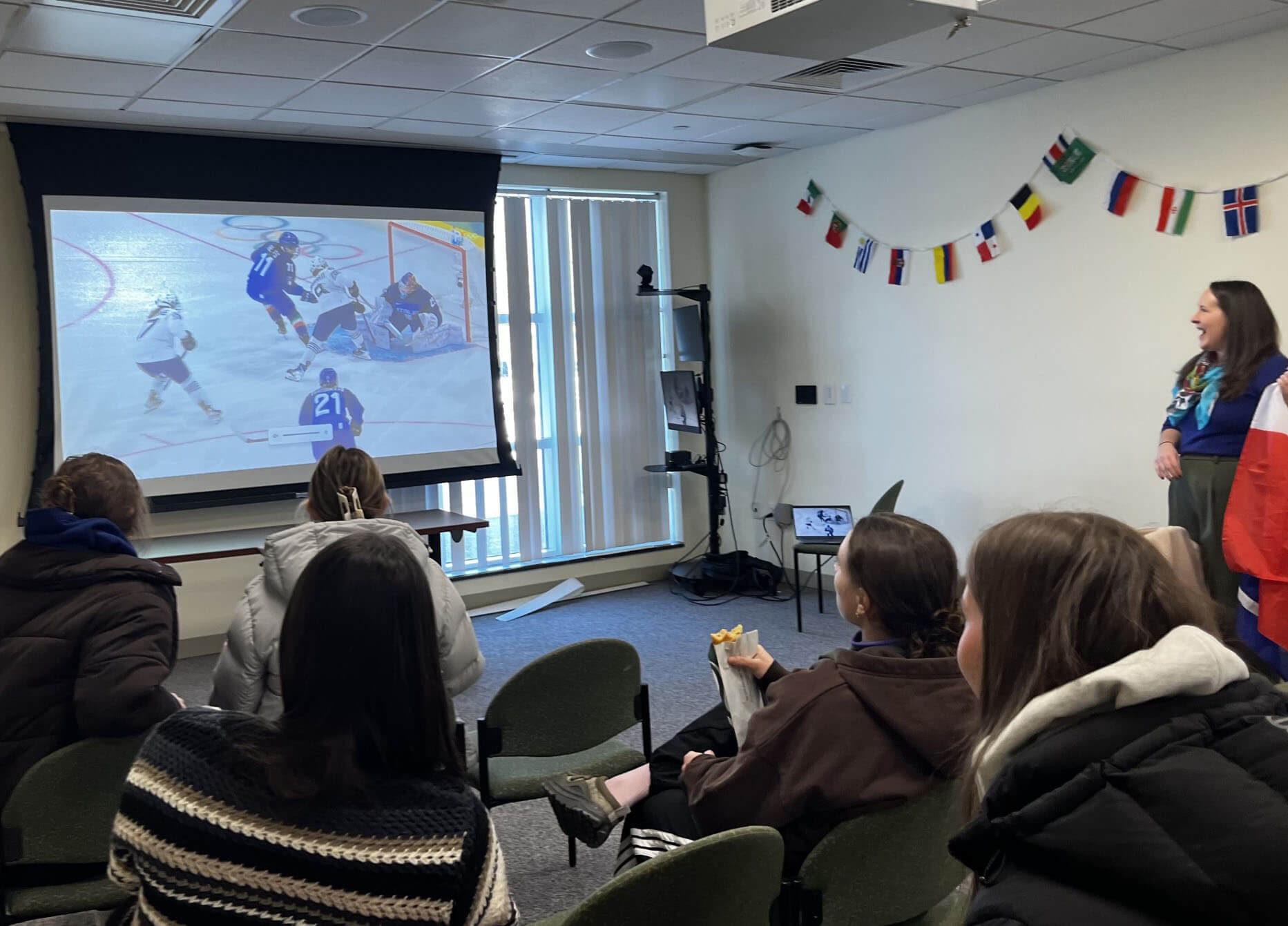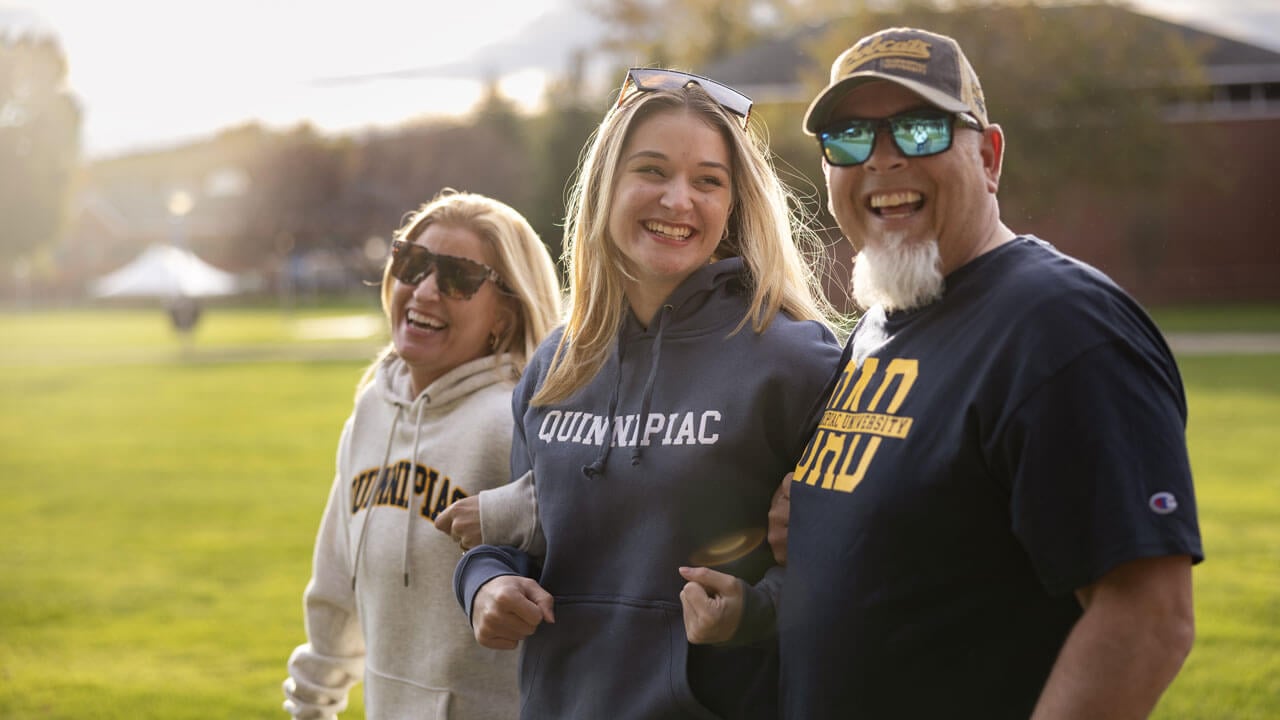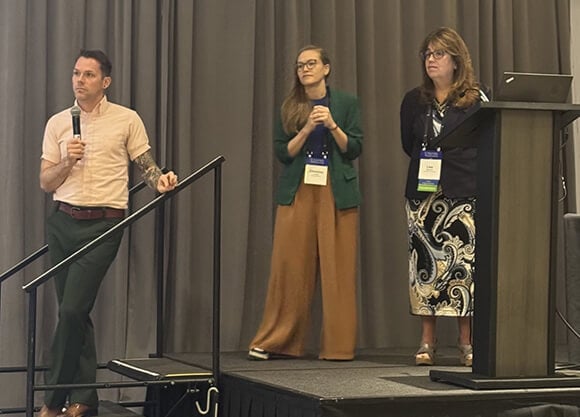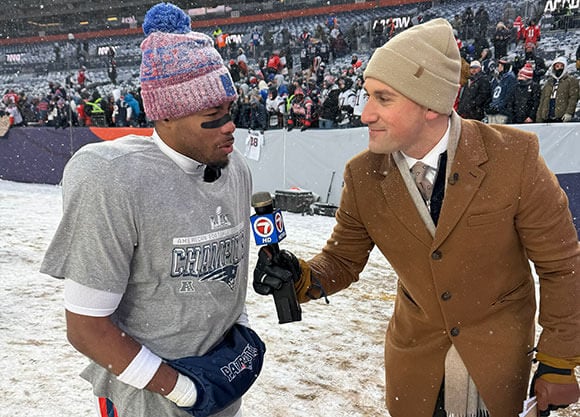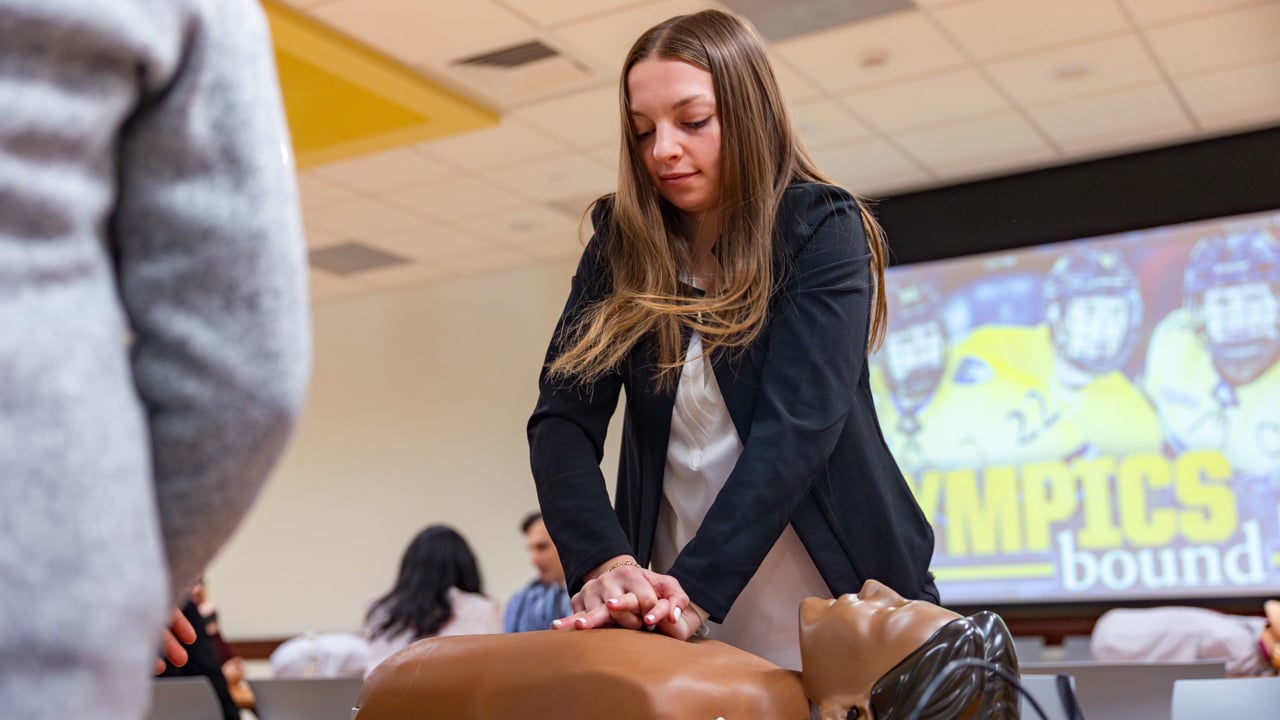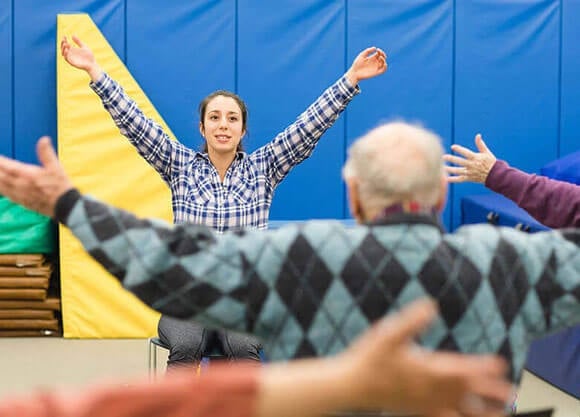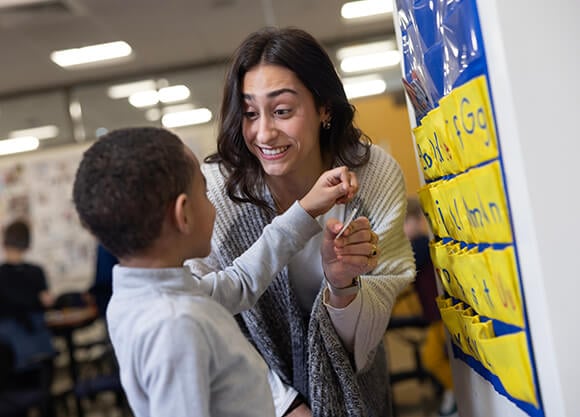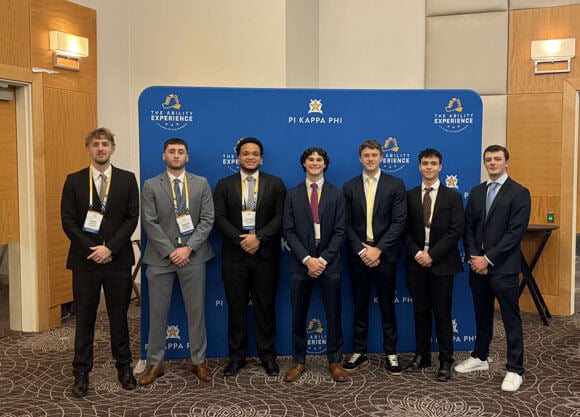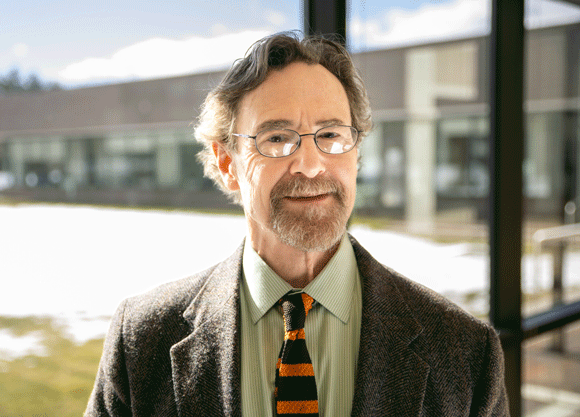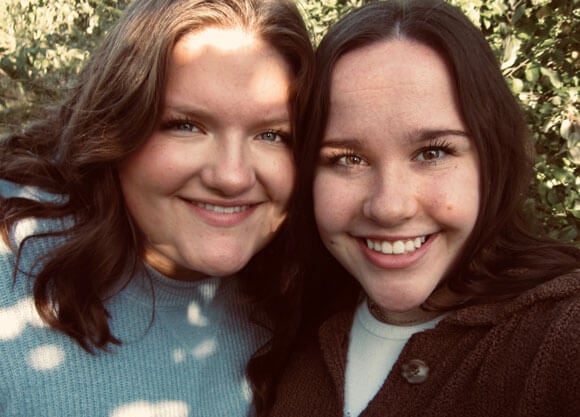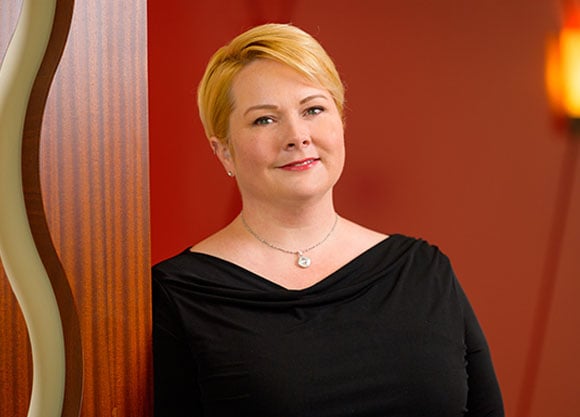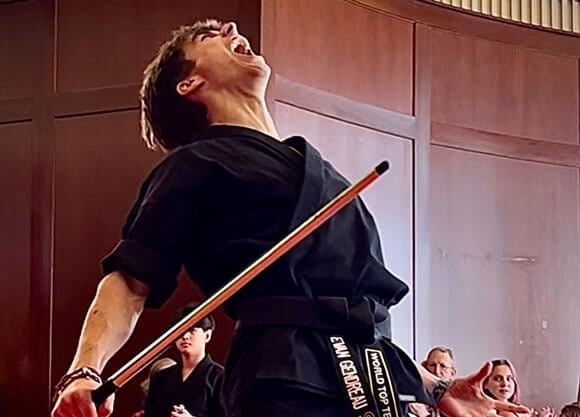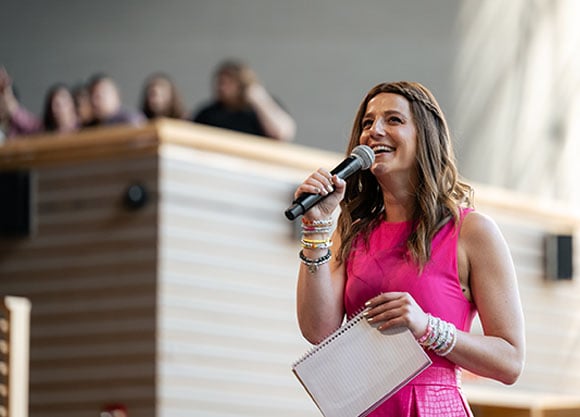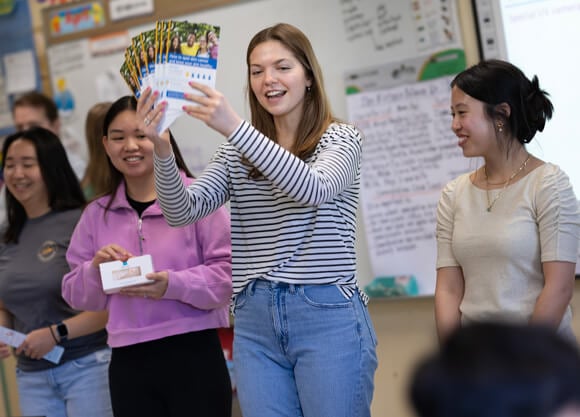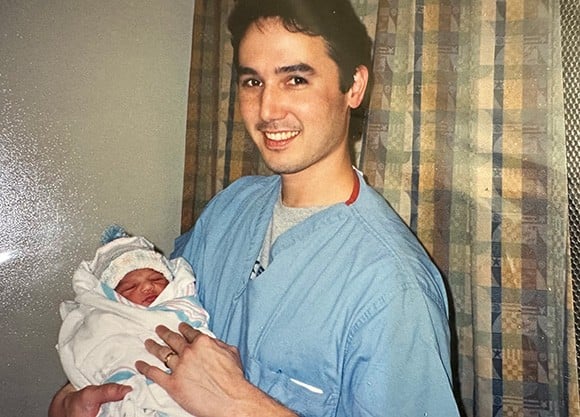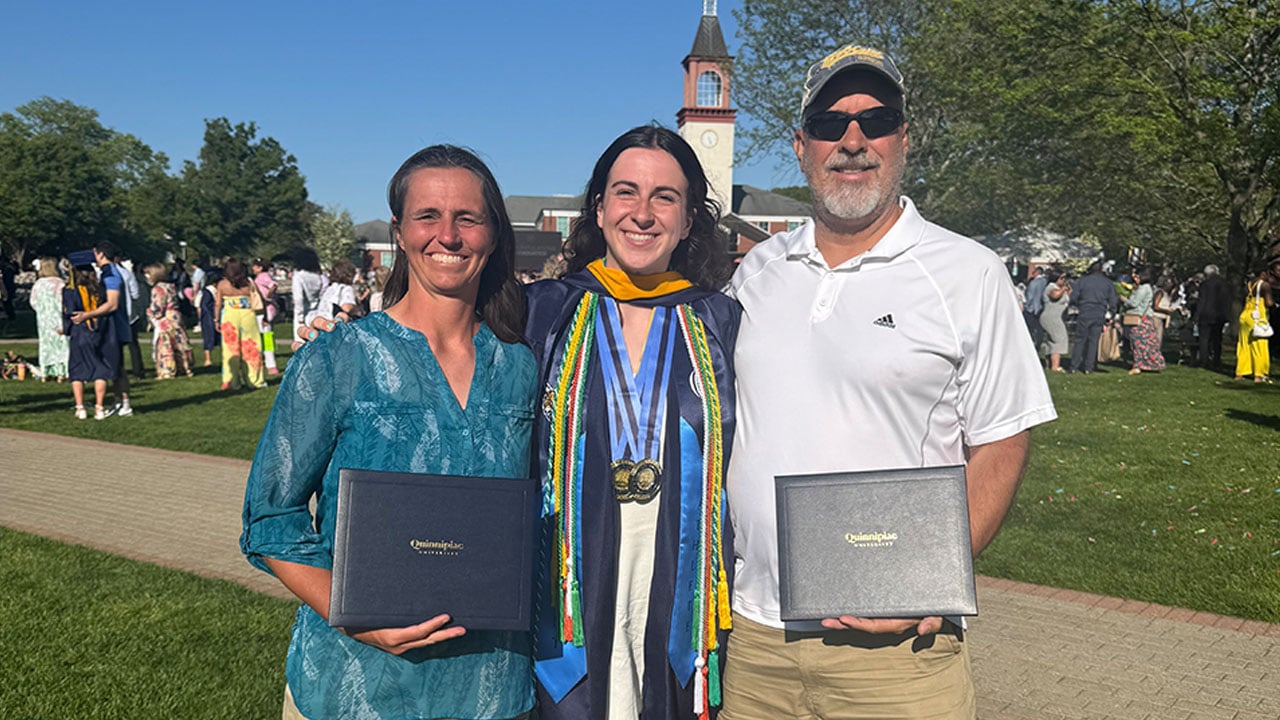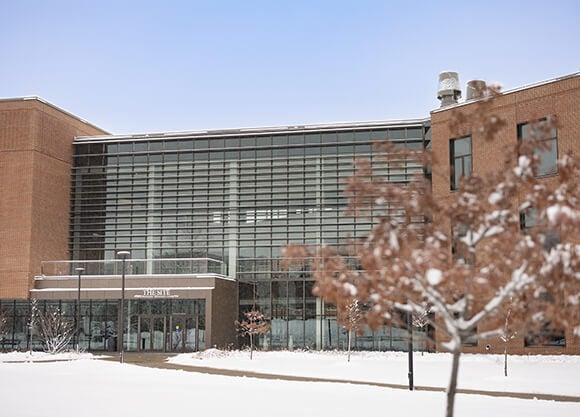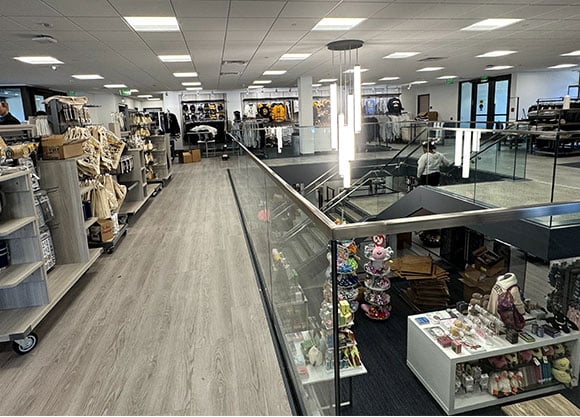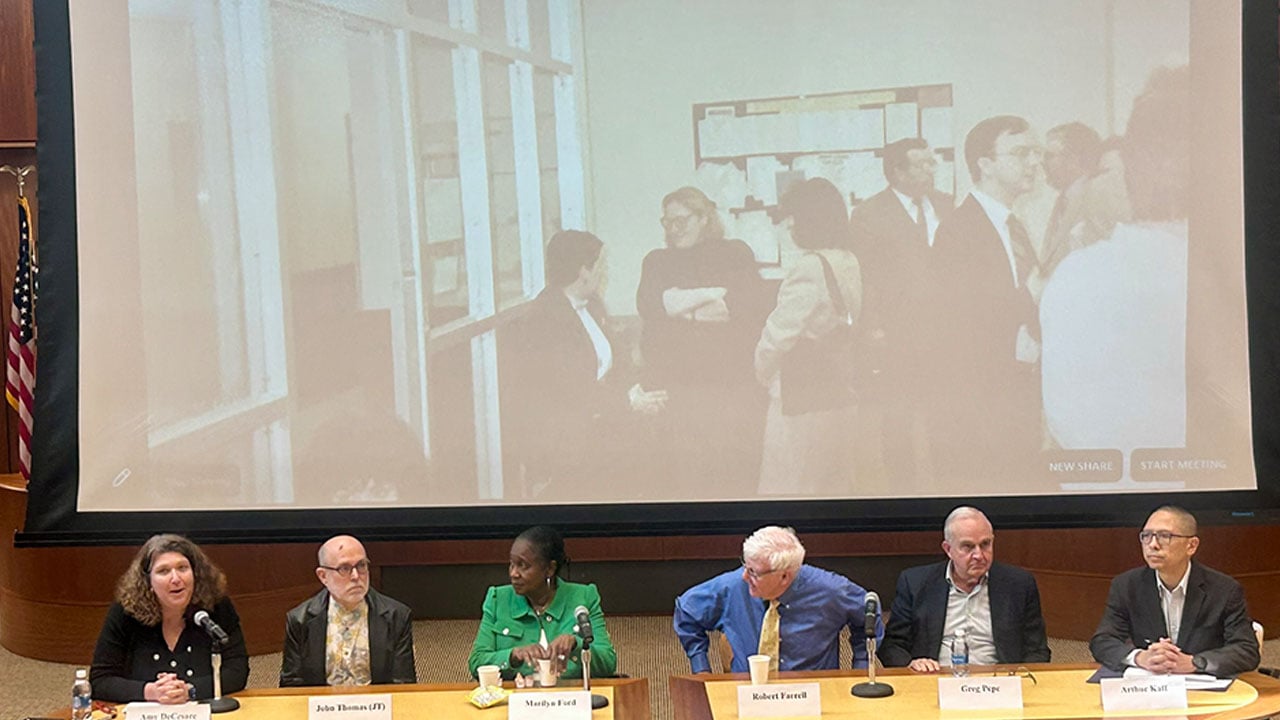
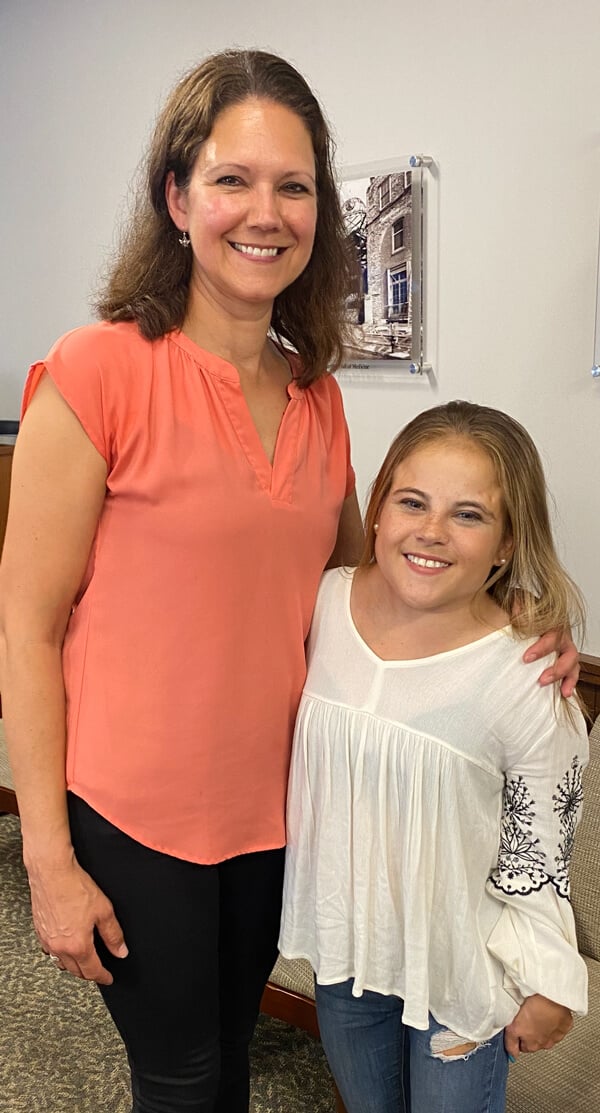
In a remarkable and rapid turn of events, Markham, in need of a living kidney donor, inspired Grgurich’s decision to test as her match, becoming a living kidney donor and saving not only Markham’s life but also the lives of two others, as well.
“Tania was my professor through my undergraduate years at Quinnipiac, and she was one of my favorite professors to work with,” said Markham. “She was always extremely approachable. If someone wasn’t feeling well, or if you had questions about the lecture, you could always talk to her.”
It was through some of those discussions that Grgurich first learned of the complications Markham was facing due to a childhood kidney transplant which was beginning to fail.
“I was born with both of my kidneys, but they were never fully developed,” said Markham. “I had one sufficient kidney that got me to about age seven, and around that age, I went through my first transplant. My first transplant was expected to last 10 to 12 years, and mine had lasted 14.”
As a result, during her senior year at Quinnipiac, Markham was beginning to encounter some symptoms of kidney-related health issues.
“She was having some complications and was getting worse,” said Grgurich. “During those conversations a couple of years ago, I had often thought to myself, ‘What if she ends up needing a kidney — and would I ever match her?’”
Fast forward to August of 2022, when Grgurich spotted a Facebook post by Markham that would change both of their lives.
“She had posted that she was looking for a kidney donor,” said Grgurich. “I was actually on vacation at the time, and it was right then and there that I looked up the number for Yale and called and did the first part of the donor screening over the phone.”
Grgurich contacted the Center for Living Organ Donors at Yale-New Haven Hospital, a program that arranges kidney and liver transplants from living donors. She registered with the hope that she could become a potential donor for Markham.
In July of 2022, Markham learned she had entered Stage 5 of chronic kidney disease.
“I was told that I would need another transplant, and for the kidney to last as long as it possibly can for my body, I would need a living donor, not a deceased donor,” said Markham. “I think it was harder for me to fathom someone just deciding to give a kidney. How was I going to ask someone for an organ? I just couldn’t imagine anyone actually doing that for me.”
While Grgurich let Markham know that she was going to get tested as a possible match, Grgurich didn’t let on that her initial testing, followed by weeks of progressive testing, seemed to be leading to a positive outcome.
“It was a couple of months of testing before I even knew if I would be compatible as her match, or if my body would be able to handle being with one kidney,” said Grgurich. “I started testing in September of 2022, and it wasn’t until the beginning of February that I actually knew I could absolutely donate.”
Meanwhile, Markham continued her MRI certificate work, with Grgurich as one of her instructors.
“I had seen Samantha weekly all last fall and a little bit of the spring,” said Grgurich. “Ironically, I was her patient for the MRI, and she would scan me weekly, so she scanned my kidneys! And as I was going through testing, she would give me updates on her health. She also told me she had heard someone had stepped forward and was going for testing. Meanwhile, I knew that was me, but I was putting on a poker face. I knew there were so many different hurdles to go through, and as I cleared each one, I didn’t want to get her hopes up only to find later on that I couldn’t help her.”
Something else Grgurich had decided early in the process was that she wanted to be an altruistic donor with the Kidney Exchange Program facilitated by Yale. Whether Grgurich matched Markham or not, by offering to donate a kidney, she would guarantee Markham received a living kidney donation, while also setting off a chain of transplants with two other donor-recipients registered with Yale’s organ transplant program.
“I wanted to help as many people as possible, and through the exchange, that could happen, and it could trigger a chain or a couple of different swaps," said Grgurich. "So Samantha ended up with her best match, and other people ended up with kidneys as well."
Due to another person who had stepped up to donate to Markham, but did not match, that person agreed to donate on Samantha’s behalf; allowing Grgurich to donate to a stranger, while Samantha received a donation from another person. In all, Grgurich’s actions extended the number of people able to benefit to a total of three donor-recipient pairs.
“It was a really remarkable chain of events,” said Grgurich.
On March 23, Grgurich and Markham were part of the chain of transplant surgeries that took place at Yale-New Haven Hospital.
“As I was getting prepped for surgery, Tania was already in the recovery room after having donated," said Markham. "I thought how Yale was able to coordinate that alone was amazing.".
Now, both Markham and Grgurich are recovered and doing very well.
“I feel exactly how I did before,” said Grgurich. “I really feel like it’s improved my quality of life, knowing that I made a difference for somebody else. And if I had an extra kidney, I would do it again.”
Markham is enjoying her work as an X-ray technologist with a Connecticut-based outpatient clinic.
“We definitely had some bumps in the road, especially during recovery, but I’m really happy to say that right now I feel really good,” said Markham. “I just want to express my gratitude for everybody involved in the process – my donors, who are literally more than friends, they are my family; and everybody at Yale-New Haven Health who was involved along the way.”
In this Article
Stay in the Loop
Quinnipiac Today is your source for what's happening throughout #BobcatNation. Sign up for our weekly email newsletter to be among the first to know about news, events and members of our Bobcat family who are making a positive difference in our world.
Sign Up Now